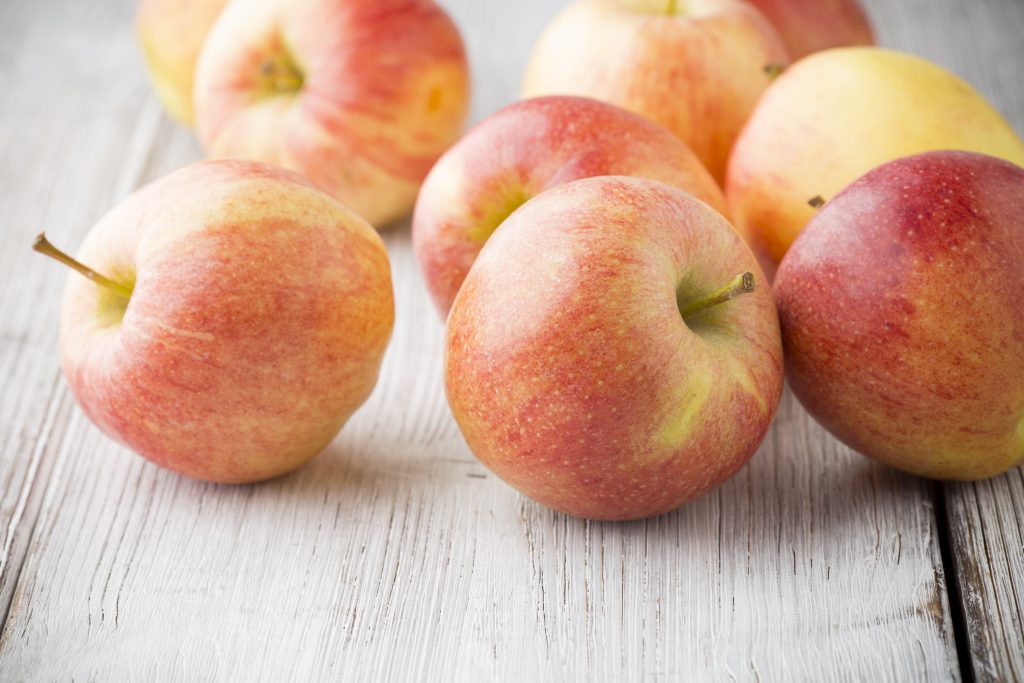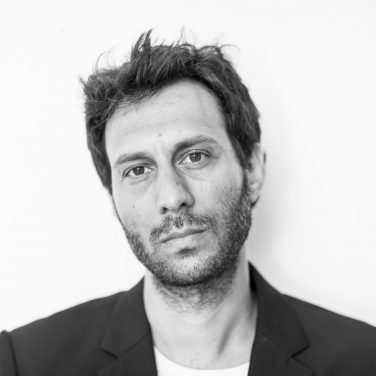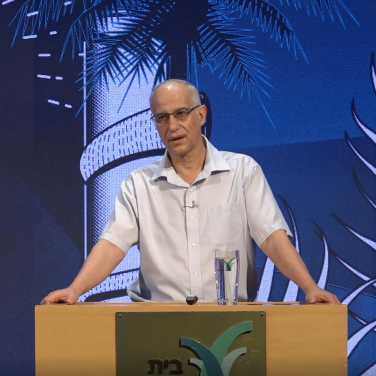You are what you eat
Ruchama Weiss
 Apple on the wooden background.
Apple on the wooden background.
Ruchama Weiss examines what the symbols (simanim) of Rosh Hashana do
As the apple is dipped in honey on the evening of Rosh Hashana, we will say “may we have a year sweet as honey”, and most homes in Israel will welcome the year 5781. On some tables there will also be pomegranate seeds, accompanied by the blessing “may our blessings be as plentiful as the seeds in a pomegranate.” Some will also eat the head of a fish or lamb, and say “may we be a head and not a tail.”
In some families and ethnic groups, the “Rosh Hashana Seder” has become almost a meal in itself: many dishes, especially fruits and vegetables, are served to the table, each accompanied by its “regular” blessing as well as its special holiday blessing. Before we delve into the origins of the seder and its “simanim”, I’d like to take a moment to consider their significance.
Eating Love
“You are what you eat,” they say, and I think most people believe this, though interpretations vary. The more rational-minded among us emphasize the connection between the quality of a food and its ingredients to how healthy it is. Romantic souls call to mind the films “Babette’s Feast” or “Like Water for Chocolate”, and many others, imagining the possibility to serve and feed upon love, envy, pain, tears, and compassion. Scholars of culture talk about formation and conservation of the community, religious devotees speak of proof of loyalty to god, and some add interpretations related to the sanctity of the body.
What are we trying to say when we eat the head of an animal, and ask “to be the head, and not the tail”? One possibility is that this is just a blessing – it’s a symbolic act, and the person eating has no real expectation for something to happen upon eating. Another option is to assume that the food and the blessing are bonded together tightly by a connection of substance (as the saying endows a blessing upon the eater, or expresses the blessing in the food). According to the second explanation, when combining the saying with the act of eating, we internalize the blessing, and every bite of the blessed food makes us, in turn, more blessed. To wish, to want, to aspire – all these are good and well – but it seems that only the experience of eating itself can offer the intensity of internalizing a wish and making it an inseparable part of the person expressing the wish – you are what you eat.
Puns and Prayers
An early reference to the tradition of the Rosh Hashana Seder can be found in the writings of one of the greatest Talmudic scholars: “Abaye said: Now that you said an omen is a significant matter, a person should always be accustomed to seeing these on Rosh Hashana: squash, and fenugreek, leeks, and chards and dates” (Talmud Bavli, Horayot, 12a / Keritot, 6a).
The dilemma addressed by Abaye deals with a list of items, which, if seen by someone, are symbols of success or failure (signs of success in business, for safe return from travels, and more). In addition to the existing signs, Abaye also suggests the symbols of Rosh Hashana as evidence of success. Note that Abaye claims that success will come upon seeing these fruits and vegetables, not eating them. Rashi explains that the reason for looking benevolently upon these foods is that “some grow rapidly, and are sweet.”
The connection between puns on the names of the foods and the way we eat the food itself is found in many later sources. The following is a description of the custom from the Tur (written by Rabbi Jacob Ben Asher, Baal Haturim or Yaakov ben Raash, Germany-Spain, 15th century): “Rashi has interpreted beans (robbiya – or lubia in Hebrew) to mean ‘may our rights be plentiful’ (yirrbu in Hebrew, which is a pun upon robbiya); leeks (karti) to mean may our enemies be cut away (yikartu); beets (salki) is a pun on “may our enemies be cast away (yistalku); and dates (tamari) is a pun on “may our enemies be finished (itamu) – because it grows quickly.”
“From here on, customs grew and proliferated, each place with its custom, like Ashkenaz where they were accustomed to eating an apple dipped in honey and saying “may we have a sweet year”, and in the provinces they are accustomed to laying many different new foods on the table, as well as the head and lung of a lamb, to say “may we be a head and not a tail, and the lung as it is light.”
Thus, we have found three kinds of simanim among the foods – foods that remind us, in their taste or appearance, of a blessed experience (sweetness, rapid growth, fertility, etc.), foods whose names remind us of blessings: robbiya – yirbu (go forth and multiply), and even foods whose names remind us of curses, through which we place curses upon our enemies: karti – may they be cut away.
For dessert: A paradox
On Rosh Hashana we eat not only blessings, but curses. We curse our enemies (or the enemies of God) through the phonetic similarity between the name of the food (in whatever language) to the word of the curse, and then we eat the food that symbolizes or carries the curse itself. Why eat cursed food?
I have no answer to the question about the choice to eat food that is cursed. The only thing I can think of ties between the “feast of curses” to the customs of Purim: eating the ear of Haman (for the purpose of discussion, it doesn’t matter how we came to believe that it is his ear); or writing the name “Amalek” on the sole of one’s shoe and making noise as the Meggilah is read. These ritual curses at Purim always remind me of the song “In the land of dwarves”, bringing to mind the bravery of the small and weak. These customs give us a glimpse into the world of our forefathers, who felt weak among the nations in which they lived, and wanted to have one day of playing pretend. Might we add the cursed foods of Rosh Hashana to this tradition of “playing pretend”?
The paradox is that man always becomes similar to his enemies (or rather, he chooses his enemies because they remind him of the unpleasant parts of himself). The cursed foods are a good demonstration of this: we serve carrots (gezer) and say “May our haters be ripped (yigazru)”, and then we eat them. What then? The evil enters our bodies – we are what we eat. We are who we hate.
A second, sadder paradox, is that the “feast of curses” continues to take place even when we live far away from “the land of the dwarves”. Today we are in no need of these curses, and educationally speaking, they may even cause harm. So may our blessings be as plentiful as the seeds of a pomegranate, and may our curses end, leaving us with the sweetness of the date.
Happy New Year!






